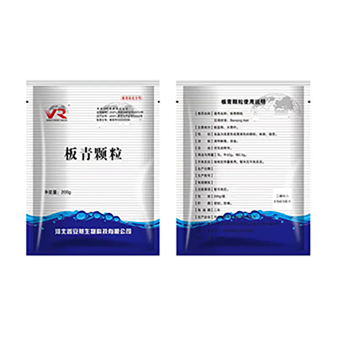- Afrikaans
- Albanian
- Amharic
- Arabic
- Armenian
- Azerbaijani
- Basque
- Belarusian
- Bengali
- Bosnian
- Bulgarian
- Catalan
- Cebuano
- Corsican
- Croatian
- Czech
- Danish
- Dutch
- English
- Esperanto
- Estonian
- Finnish
- French
- Frisian
- Galician
- Georgian
- German
- Greek
- Gujarati
- Haitian Creole
- hausa
- hawaiian
- Hebrew
- Hindi
- Miao
- Hungarian
- Icelandic
- igbo
- Indonesian
- irish
- Italian
- Japanese
- Javanese
- Kannada
- kazakh
- Khmer
- Rwandese
- Korean
- Kurdish
- Kyrgyz
- Lao
- Latin
- Latvian
- Lithuanian
- Luxembourgish
- Macedonian
- Malgashi
- Malay
- Malayalam
- Maltese
- Maori
- Marathi
- Mongolian
- Myanmar
- Nepali
- Norwegian
- Norwegian
- Occitan
- Pashto
- Persian
- Polish
- Portuguese
- Punjabi
- Romanian
- Russian
- Samoan
- Scottish Gaelic
- Serbian
- Sesotho
- Shona
- Sindhi
- Sinhala
- Slovak
- Slovenian
- Somali
- Spanish
- Sundanese
- Swahili
- Swedish
- Tagalog
- Tajik
- Tamil
- Tatar
- Telugu
- Thai
- Turkish
- Turkmen
- Ukrainian
- Urdu
- Uighur
- Uzbek
- Vietnamese
- Welsh
- Bantu
- Yiddish
- Yoruba
- Zulu
Ліст . 07, 2024 20:26 Back to list
Ivermectin Injection Dosage Guidelines for Safe Cat Treatment and Care
Ivermectin Injection Dosage for Cats A Comprehensive Guide
Ivermectin is a widely used antiparasitic medication that is effective against various internal and external parasites in both humans and animals. While it is well-known for its application in livestock and pets, including dogs, its use in cats requires careful consideration and knowledge about proper dosages. This article provides insights into ivermectin injection dosage for cats, focusing on safety, effectiveness, and necessary precautions.
What is Ivermectin?
Ivermectin belongs to a class of drugs known as macrocyclic lactones. It works by binding to specific chloride channels in parasites, leading to paralysis and death. This makes it an effective treatment for infestations caused by roundworms, ear mites, and various ectoparasites. However, it is crucial to note that the use of ivermectin in cats is different from its application in other animals, particularly dogs, due to cats' unique physiology.
Dosage Recommendations
The appropriate dosage of ivermectin for cats largely depends on the specific condition being treated, the cat's weight, and its overall health status. Veterinarians commonly recommend ivermectin at a dosage of 0.1 to 0.2 mg/kg for different types of parasitic infections. This is generally administered as a subcutaneous injection, which is considered safe and effective when done correctly.
For instance, for a healthy adult cat weighing about 5 kg (approximately 11 lbs), the dosage may range from 0.5 mg to 1 mg of ivermectin. However, it is vital to consult a veterinarian before administering the drug to ensure that it is appropriate for the individual cat and its specific condition.
Administration of Ivermectin
ivermectin injection dosage for cats

Ivermectin injection should be administered by a qualified veterinarian to ensure proper technique and dosage. The injection site is typically in the scruff of the neck or under the skin. It is imperative to avoid intravenous administration, as this can lead to severe reactions.
In some cases, veterinarians may recommend oral formulations or topical applications of ivermectin, particularly if injections are not feasible. Each method has its pros and cons, and a veterinary professional can guide pet owners on the most suitable option.
Safety Considerations
While ivermectin can be incredibly effective for treating parasitic infections, there are several safety concerns that cat owners should be aware of. Certain breeds, such as Abyssinians, Siamese, and some mixed breeds, may be more sensitive to ivermectin and can experience adverse effects, ranging from mild to severe. Symptoms of toxicity may include lethargy, tremors, salivation, and vomiting.
Cats with compromised liver or kidney function should not receive ivermectin without close veterinary supervision. Additionally, ivermectin should never be combined with other medications, especially those that also affect the nervous system, without consulting a veterinarian.
Conclusion
Ivermectin can be a valuable tool in the fight against parasites in cats when used correctly and under veterinary guidance. Understanding the appropriate dosage based on the specific needs of your cat is essential for ensuring effective treatment while minimizing risks. Always consult with a veterinarian for an accurate diagnosis and treatment plan tailored to your cat's individual health profile. By doing so, you can help ensure your feline companion remains happy and healthy, free from unwanted parasites.
-
Guide to Oxytetracycline Injection
NewsMar.27,2025
-
Guide to Colistin Sulphate
NewsMar.27,2025
-
Gentamicin Sulfate: Uses, Price, And Key Information
NewsMar.27,2025
-
Enrofloxacin Injection: Uses, Price, And Supplier Information
NewsMar.27,2025
-
Dexamethasone Sodium Phosphate Injection: Uses, Price, And Key Information
NewsMar.27,2025
-
Albendazole Tablet: Uses, Dosage, Cost, And Key Information
NewsMar.27,2025













